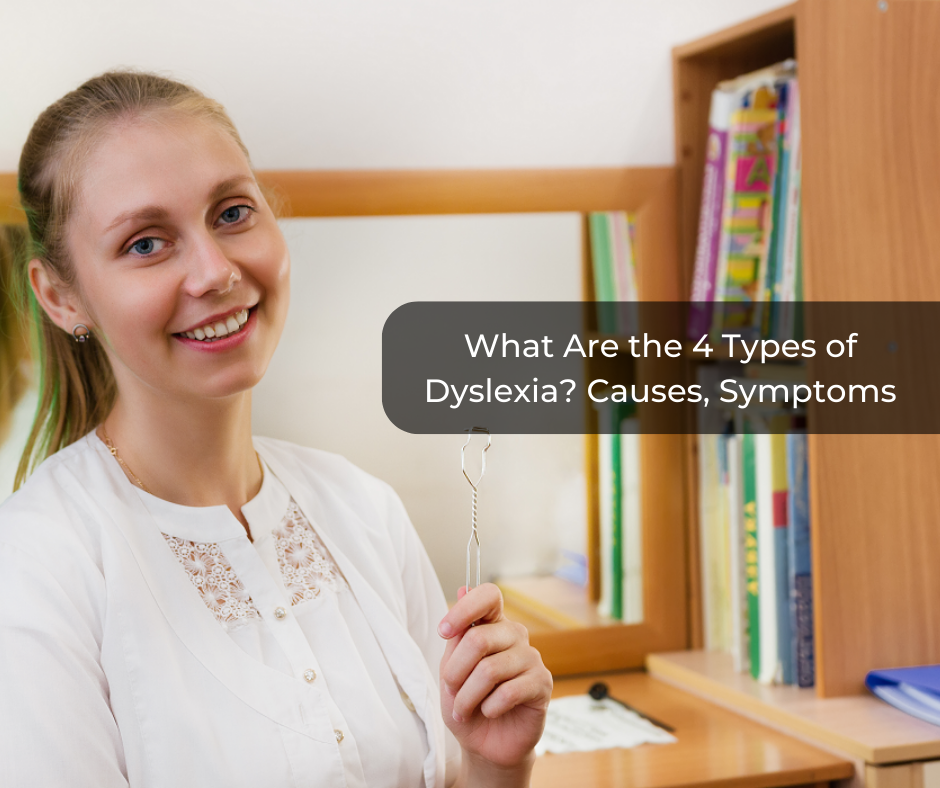Individuals who are dyslexic typically have trouble understanding and comprehending what they are reading. It is not contagious and is not caused by vaccinations.
Although a child who has dyslexia may have trouble reading, spelling, and writing does not necessarily have a low IQ. Instead, a person with dyslexia may be more intelligent than the average individual.
An estimated 5 to 10 percent of the population is thought to be affected by the disorder known as dyslexia. Some estimate that up to 17% of people may have reading problems.
There are no recognized diagnostic dyslexia subtypes. Previous classifications of dyslexia included a number of different forms, but recent classifications include four varieties that are suggested based on the symptoms.
4 Types of dyslexia
Phonological dyslexia
- Additionally known as auditory dyslexia or dysphonetic dyslexia.
- This particular form of dyslexia prevents people from matching the sounds of the written forms to the individual letters and syllables.
Surface dyslexia
- This is also known as dyseidetic or visual dyslexia.
- It is thought that problems with vision or visual processing in the brain cause this particular type of dyslexia, which is characterized by difficulty recognizing whole words.
- These people may have difficulty comprehending and memorize words because they have a hard time understanding the words.
Rapid naming deficit
- The person has difficulty quickly and automatically naming a letter, number, color, or object. The slow processing time makes naming them difficult.
Double deficit dyslexia
- The phonological process and naming speed both show deficits in the person with double deficit dyslexia. This category includes the majority of the weakest readers.
A person with dyslexia has a heavy burden of reading-related disabilities that they are unable to cope with.
What are the causes of dyslexia?
- Dyslexia, a condition that is present at birth, has a multifactorial etiology, including:
- Dyslexia runs in the family and is caused by inherited dyslexia-related genes.
- Premature birth or low birth weight
- Prenatal exposure to harmful substances including nicotine, drugs, and alcohol may affect fetal brain development.
- Infections in the mother during pregnancy may affect the fetus’s brain development.
- Differences in reading and comprehension-related brain parts
- Exposure to stress at an early age
- Although dyslexia is present at birth, people who have suffered a brain injury, a stroke, or dementia may also exhibit dyslexia-related symptoms.
- Age may make dyslexia worse
What are the symptoms of dyslexia?
People who have dyslexia have trouble reading, understanding, and remembering words. However, early diagnosis of the disease and support in learning the phrases through alternative means aid in the condition’s improvement.
Dyslexia symptoms can be seen as early as the preschool years, in school-age children, and in adolescents. Adults can be diagnosed with dyslexia if they exhibit specific symptoms.
Preschool children
- Delayed speech development
- Difficulty memorizing colors and letters
- Selecting inappropriate words, using reverse sounds, or mixing up words with similar sounds
Elementary and middle school children
- Reading difficulties and possibly reading more slowly than other children in the class
- Processing information and remembering things in a sequential order is difficult
- Take longer to read and write
- Having difficulty understanding words with similar sounds or learning new words
- Avoid participating in tasks that include reading.
Teen and adults
- Take time to process or summarize what they read or write
- Struggle to learn a new language or spell
- Mispronounce words, difficulty doing math or memorizing text
- Difficulty conveying a story
- Difficulty reading aloud
- Poor handwriting
- Poor academic performance
If you’re a parent or a teacher who needs to know about dyslexia, you can get in touch with us.
